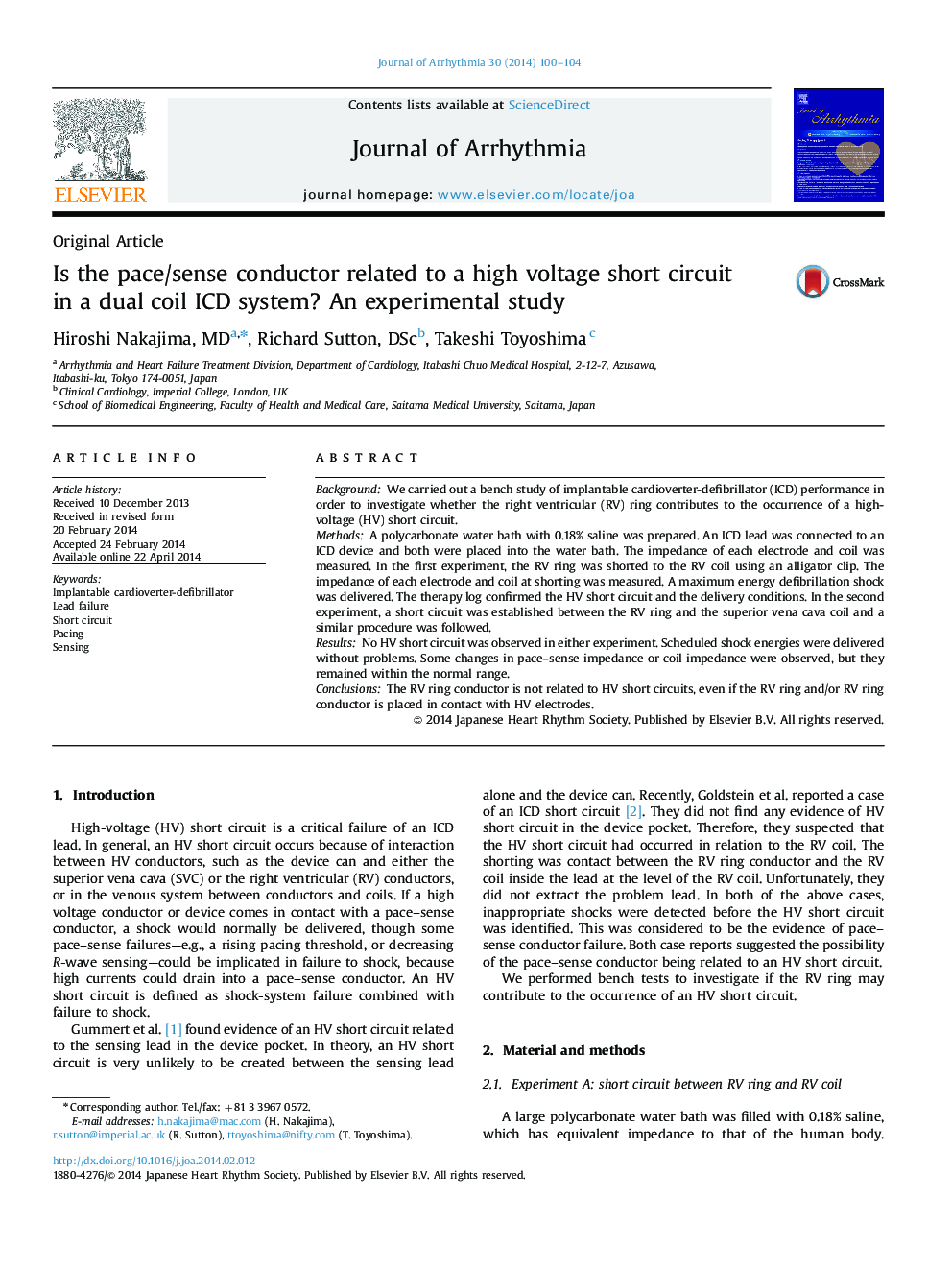| Article ID | Journal | Published Year | Pages | File Type |
|---|---|---|---|---|
| 2957742 | Journal of Arrhythmia | 2014 | 5 Pages |
BackgroundWe carried out a bench study of implantable cardioverter-defibrillator (ICD) performance in order to investigate whether the right ventricular (RV) ring contributes to the occurrence of a high-voltage (HV) short circuit.MethodsA polycarbonate water bath with 0.18% saline was prepared. An ICD lead was connected to an ICD device and both were placed into the water bath. The impedance of each electrode and coil was measured. In the first experiment, the RV ring was shorted to the RV coil using an alligator clip. The impedance of each electrode and coil at shorting was measured. A maximum energy defibrillation shock was delivered. The therapy log confirmed the HV short circuit and the delivery conditions. In the second experiment, a short circuit was established between the RV ring and the superior vena cava coil and a similar procedure was followed.ResultsNo HV short circuit was observed in either experiment. Scheduled shock energies were delivered without problems. Some changes in pace–sense impedance or coil impedance were observed, but they remained within the normal range.ConclusionsThe RV ring conductor is not related to HV short circuits, even if the RV ring and/or RV ring conductor is placed in contact with HV electrodes.
